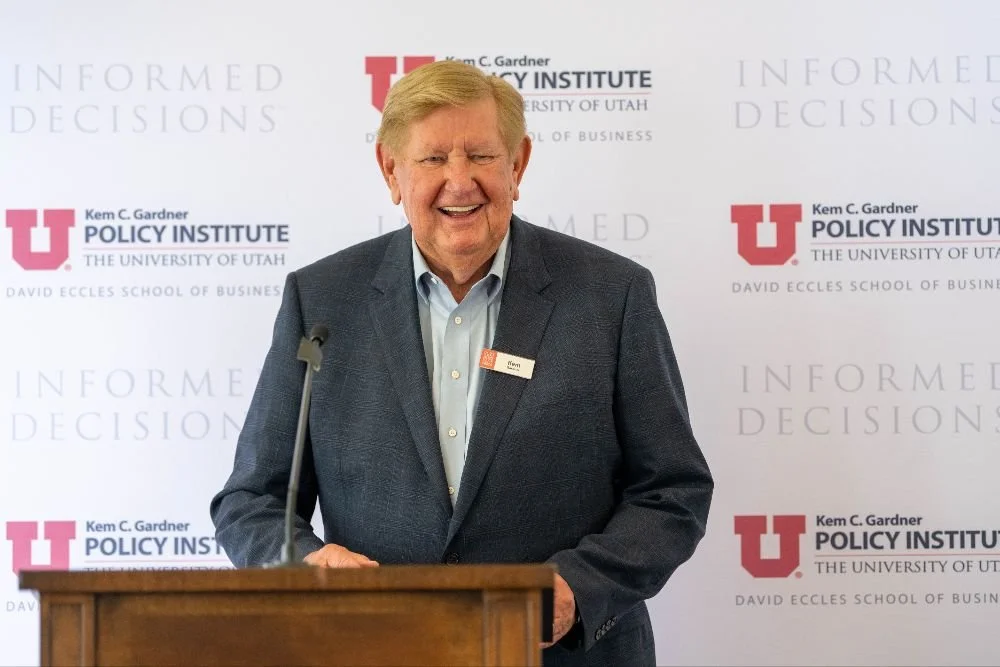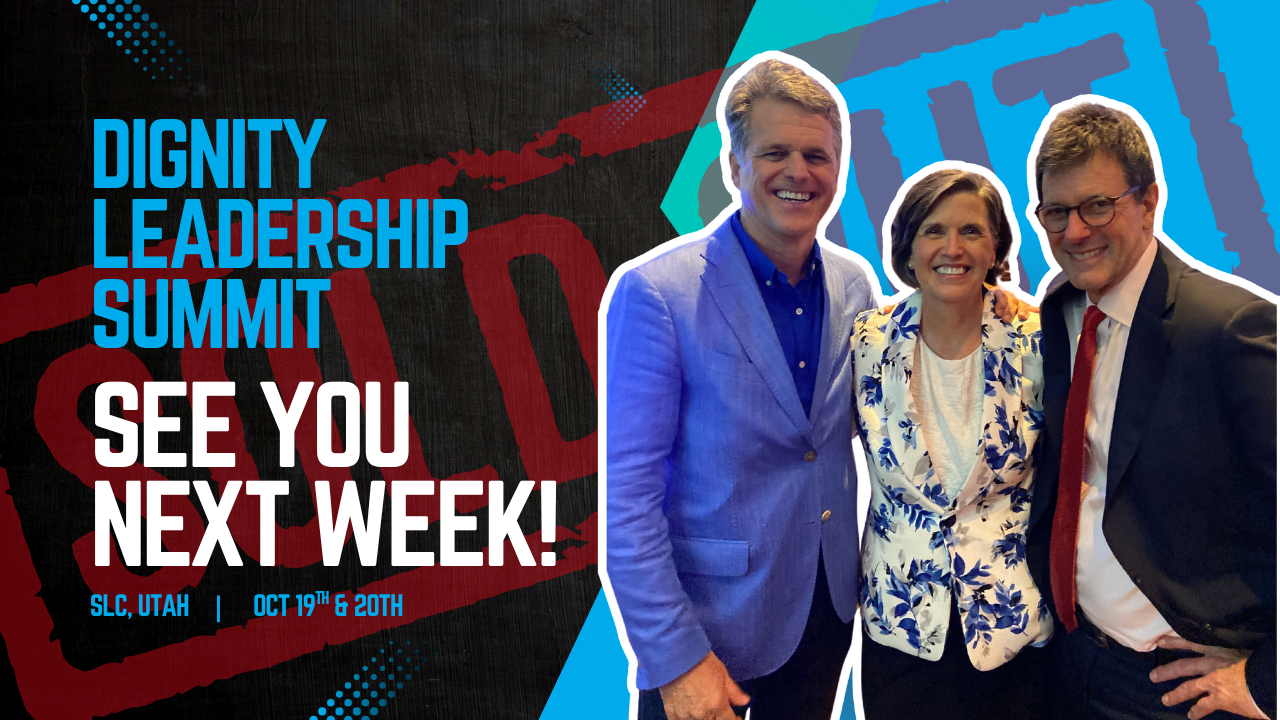If there’s any one anecdote that captures Kem’s humility and generosity, this story must be a leading contender among a lifelong litany of good works.
“The fact that he asked the question answers the question,” President Randall said, reminiscing about the moment. “That’s Kem Gardner.”
And, for the record, Natalie’s survey results were overwhelmingly positive.
It will probably come as no surprise that the Kem C. Gardner Policy Institute leads with the kind of dignity that has defined Mr. Gardner’s life. And the Institute has proved itself invaluable to the Dignity Index’s early development and continuing growth.
The Policy Institute provided guidance and a trusted platform for the Dignity Index’s first-ever public demonstration in 2022, when it was applied to political speech in that year’s midterm elections. Crucially, the Institute used its expertise to certify the Index’s validity and consistency as a social scientific tool. Eventually, what began as a pilot program grew to be an expansive partnership based on academic rigor and shared values.
That tone is set at the top.
“The mantra of the Policy Institute is spread light, not heat,” President Randall said, adding that he understood almost intuitively upon meeting our co-founder Tim Shriver a few years ago, that dignity “would have to be a core element of our ethos if we want to be an impact university.”
Kem’s name on that Institute underscores the point. A self-made man who was raised on a Wyoming farm, the son of a school teacher, Kem has come to be known as a person who can make things happen. He and his partners have developed over 33 million square feet of commercial business space in the Intermountain West.
Dignity Index team member Madeleine Jones, leader of our Higher Education initiatives, began her time with us as an undergraduate student learning how to code language for the pilot program at the Policy Institute. She was among a few students then hired in the summer of 2023, going on to a career defined by dignity.
“This opportunity has been phenomenal, not only because we are working on something so impactful, but also because it is a key reason we’ve made such substantial progress as an organization,” Madeleine said. “We wouldn’t be able to partner with so many universities without Kem’s vision and generosity.”
That fall was a pivotal moment for the emerging Index. To be taken seriously as a social scientific tool, it needed to be rigorously tested by experts in the field. The Institute set out to help answer the seemingly simple, but enormously important question: “does this scale really work?”
“There was a lot of work done on consistency and reliability,” said Diane Meppen, the Institute’s director of community research.
She continued, “We have the ability to measure, so the simple thing that caught my attention was, ‘Can this be quantified – the words dignity and contempt?’ It was a really exciting project to be involved in because I don’t think any of us knew exactly what this would look like.”
Team members recall that time as an exciting moment of discovery. Not only did the Index hold up to scrutiny once analyzed in real world scenarios, but it offered up one of the most serendipitous of surprises: the mirror effect. The student coders found that using the Index to score others’ speech also prompted personal reflection and behavior change.
“It was fascinating!” said Jennifer Robinson, chief of staff at the Policy Institute. “We had no way to anticipate that.”
Tom Rosshirt, co-creator of the Index, said the work of the Kem Gardner Policy Institute has been transformative. “The resources and research capacities of the Institute allowed us to test the Index, measure its inter-rater reliability, train scorers, and validate the results. The Index is now a serious social science tool that offers a common vocabulary and common metric for a national conversation on healing our divisions. The Institute’s contributions have already been enormous, and so much research on future applications is still ahead.”
One of Kem’s passions is his role as chairman of the Utah Days of ‘47 Rodeo, a longstanding charitable event meant to celebrate the state’s pioneer spirit.
“What’s incredible about Kem is he has the ability to honor the past but also be very forward-looking,” President Randall said. “At the same time, he’s a builder and a real estate developer and in touch with the technology industry and everything forward-looking. If you think about a policy institute, you’ve got to have positions that honor the past while anticipating the future.”
“And that’s Kem Gardner.”
Susan



